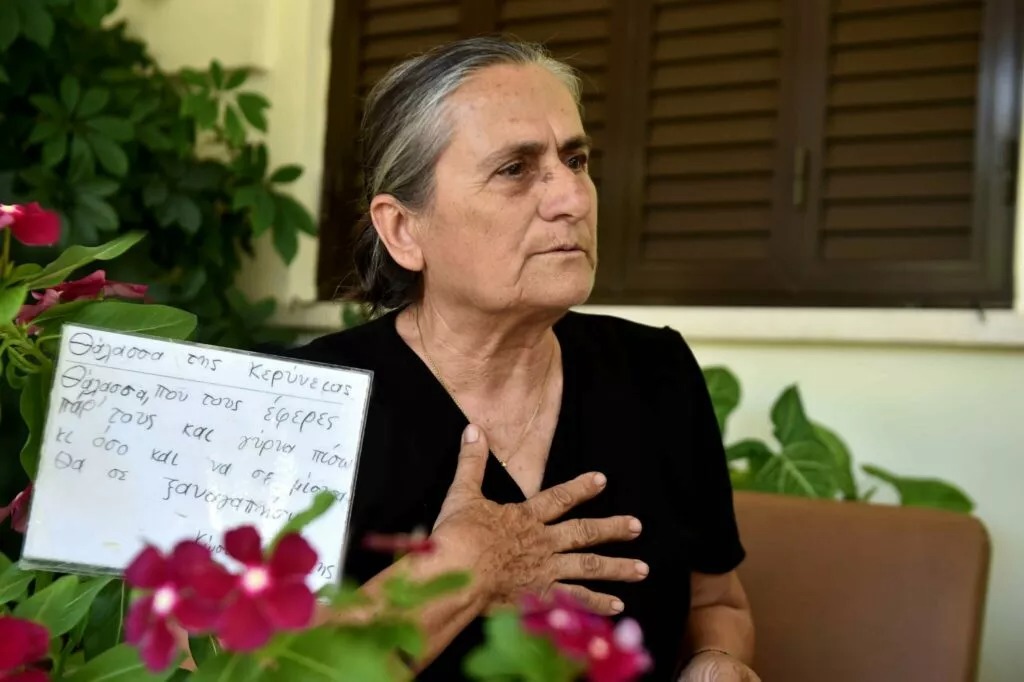For decades, Charita Mantoles, from the village of Elia in occupied Kyrenia, has been a relentless figure in the quest to find her missing loved ones who perished during the Turkish invasion, clutching their photographs around her neck.
Her people; her father, her husband and two sons-in-law were found and buried in 2008. Despite this, her struggle continued even after the remains of her loved ones were located and buried. Her efforts will continue until the liberation of Cyprus, as she always says, drawing inexhaustible strength from her experiences. She has been carrying the tragedy of her homeland since 1974.
“The images we clung to at the barricades are forever etched in our chests. We keep asking for our missing ones, and this will continue until all mothers find out about their missing children. These photographs are to remind us of the evil that was done…’ (interview with Active, Andri Daniel). “They put us on the veranda of the house and started beating the men. They threw the milk of the small children with bottles down… They took us to a rural road… there the crime was committed, shooting my husband with a one-year-old baby in his arms, and I with the two-year-old,” she said in her harrowing narrative. And this testimony has been given since 1974 because she had the strength to inform about what happened.
As we watched last Sunday, Charita Mantoles is portrayed in the series Famagusta (on Alpha TV) by the top actress Despoina Bebedeli. ‘I am 27 years old, just as I was that day,’ said Ms Bebedeli, as Charita Mantoles, describing the Turkish atrocities, the cold-blooded executions, the destructions. And so it is. She remained 27 years old when her life was ‘cut off,’ her dreams ‘interrupted,’ and only the nightmare remained dominant. The anxiety for the fate of her loved ones. The anxiety to live for her two small children. What she saw and experienced cannot be erased by any time machine. These cannot be forgotten! It’s her whole life.
Finding herself a refugee with two young children, Mantoles settled in Limassol. Always thinking about her loved ones, she tried to ensure the survival of her children. At the same time, she was enlisted in the great struggle, which started from the first day. She was at the forefront of the mobilisations from the beginning. She was the one who tried to speak by phone with Denktaş to tell him about her husband, her father and her relatives, who went missing. From a telephone booth, she wanted to speak to the occupation leader, to tell him about her people, whom the occupying army had gathered outside the village and, as it turned out, were executed in cold blood.
Ms Mantoles’ story is a known one. She has kept it alive in our collective memory. It serves as a constant reminder of the ‘I do not forget’ mantra. Her story is the story of this land.
The story of Ms Charita Mantoles belongs to her and all the relatives of the missing.
Every photograph ‘crammed’ in the funerals and memorials pages of newspapers is the forgotten tragedy that we collectively and individually experience half a century since. Fallen and murdered, whose “remains were identified by the DNA method” and are delivered to relatives. Some didn’t get to live. To enjoy. To create families.
The story of Charita Mantoles and all these people is living memory, half a century later.






